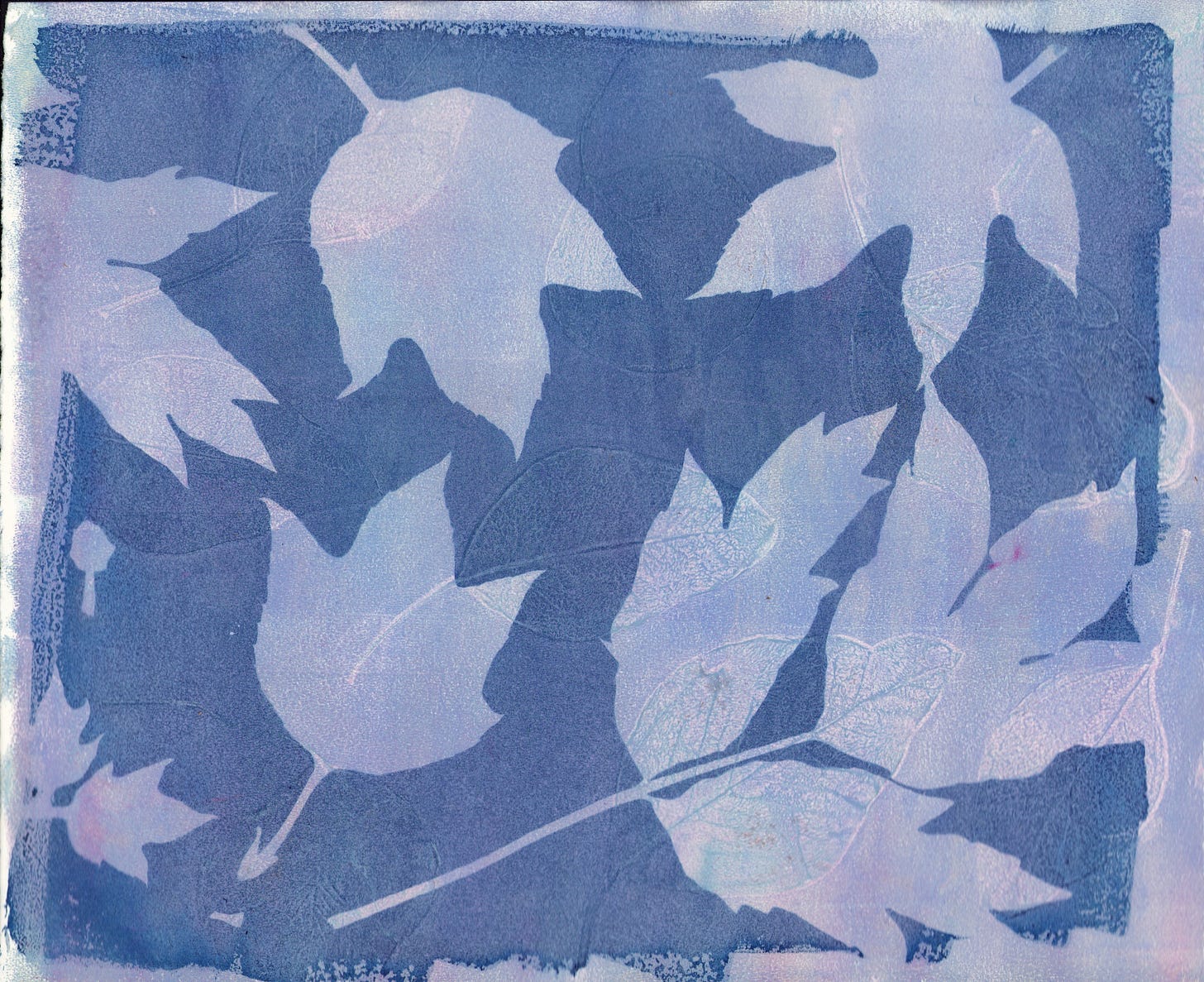My mind prepares for a poem. In this mad world, at this cracking crack of time, I summon my own stillness,
though this is a process,
though this entails
a roaring back at bewilderments, an argument with asphalt hills, a ruckus of a gesture toward forgiveness, a hole dug for the clematis, until there is pause enough, room enough for a poem chosen from a new book by an old friend—more than one poem,
if I’m counting, but no one counts inside stillness, and also the book is yellow, orange, bruises of blue, and I should say that my friend is Gregory Djanikian, who asked me long ago to teach at Penn, who radically changed my life because I said, radically, yes, and now, all these years on, I am holding his Nostalgia for the Future: New and Selected Poems (1984-2024) in my hands, turning its pages—quieting, quieter, shhhh,
for he is slicing the body as if it were a plum. He is listening to the cicadas outside/soughing in a loud chorus of dissonant song, he is waiting for an ending, now providing instructions for a disappearance, and the poems come as rain falls before or after storm. Either my heart beats to the poems or the poems beat to my heart. Nevertheless,
I have forgotten the bewildering ruckus, I am not worrying the ungenerous dimensions of the dug hole, I am just poeming, which is to say being taught by the poems how to read the poems, and now, having established their authority, the poems grow more complex, trusting the reader to follow them, thought to thought, past to present, like the one that ends like this:
… you are floating now on this stream
standing still and thinking how long it took you
to get here in your incidental life
episodic, syncopated
hopping as if from one stone to another
across the wide and continuous waters.
(“Stepping Stones")
The stillness broadens. The pages turn themselves and here, in the final addition to the New Poems, is “Later Years,” which is a wish to extend the present hour by recovering the past, to become the world while watching the world, to abandon the idea of departure, but wait, Gregory Djanikian says it so much better than I ever could; he says it all for all of time, and so we listen; I do.
I wish it could stay like this,
I wish goodbye were an archaic word
We could cross out without consequence,
Something left over from the old languages.
All the headlines have an ache to them.
All the stories keep holding out for a better ending.
(“Later Years”)
**************
Tomorrow Will Bring Sunday’s News: A Philadelphia Story, received a Booklist star and was recently featured in Washington Post Book World and Historical Novel Review. Caroline Leavitt and I talked about the book’s making here.
My first book on the writing of memoir, Handling the Truth, won a Books for a Better Life Award shortly after its publication in 2013. I’ve continued to write books about the making of true stories ever since, working with my husband to create workbooks, prompt-rich books, and suggested approaches to the page. A guide to those resources, along with a link to my essay collection You Are Not Vanished Here (illustrated by William Sulit) can be found here.
Join me for a CraftTalk on sentence making, May 21, registration here.
Join me for an in-person writing workshop in September, through Maine Media.





A beautiful prose poem with accompanying poetry. It made me breathe slowly and deeply. 💛
or a different ending?